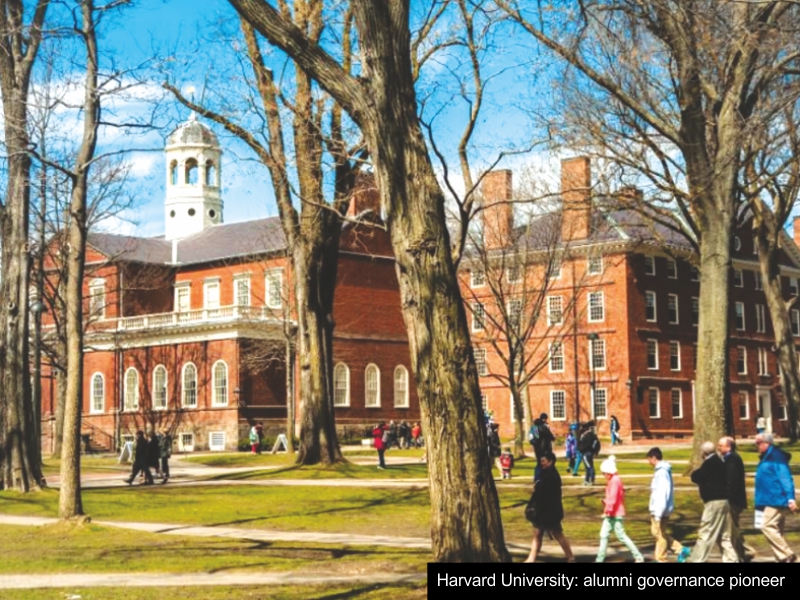
Why are American universities pre-eminent in global higher education? Previous explanations have included the country’s massive economy, its enormous budget for scientific research and its history of immigration. But a scholar suggests that the answer could be something more prosaic: the fact that they are governed largely by their alumni.
Shailendra Raj Mehta, president and director of MICA, an Ahmedabad (India)-based higher education institution specialising in strategic marketing and communication researched the members of governing boards at leader private and public US universities and found that the majority are predominantly made up of alumni, while several consist entirely of former students.
Mehta argues this is why older institutions have managed to sustain excellence over long periods of time and why newer universities build prestige quickly. Higher-ranked universities and institutions with bigger endowments generally have a larger share of alumni on their boards, according to the research presented at a webinar organised by the Centre for Global Higher Education on March 2.
Prof. Mehta says the alumni governance model was pioneered by Harvard University in 1865 as a way for the institution to regain control after being managed by the legislature of the state of Massachusetts. Within ten years, its endowment tripled, and it tripled again in the subsequent two decades, he adds.
“This is important because the control of Harvard has rested securely in the hands of those who know most about it and care most about it — viz, its alumni,” he says. “By contrast, the other models of governance for universities — viz, control by the state, control by trusts, control by faculty and control by the market – are all fraught with peril.”
“The prestige of the university directly reflects on its alumni. Conversely, no body of individuals is affected more directly than alumni if the university slides down in quality,” he says, adding that alumni are also more likely to make philanthropic donations if the institution is in the hands of other alumni because “they know that the funds will be well spent”.
(Excerpted and adapted from Times Higher Education and The Economist)
Also Read:United States: End of public exams?
